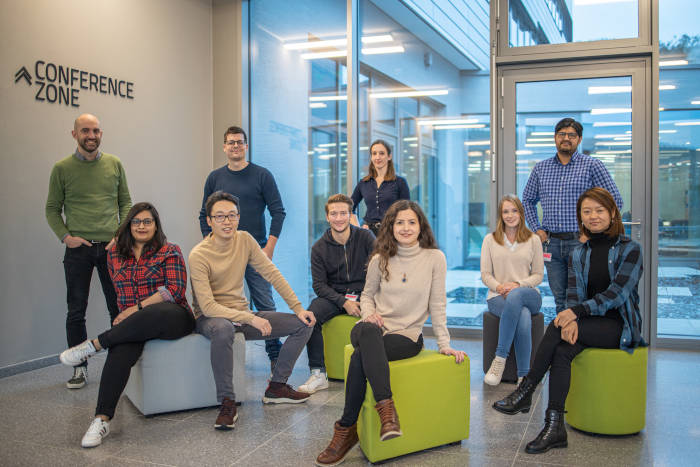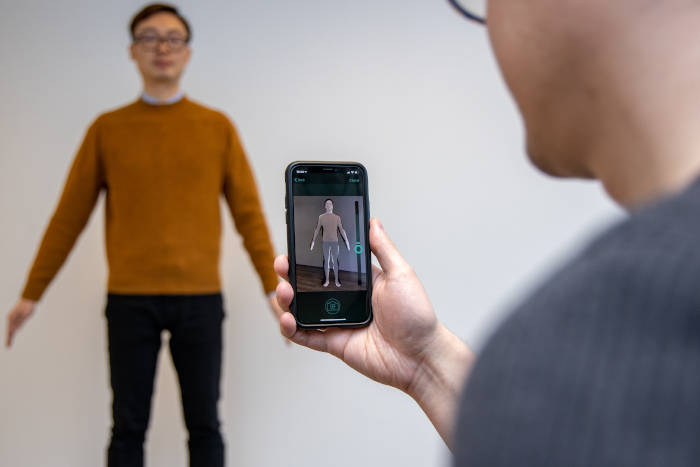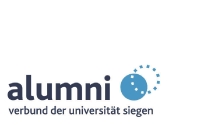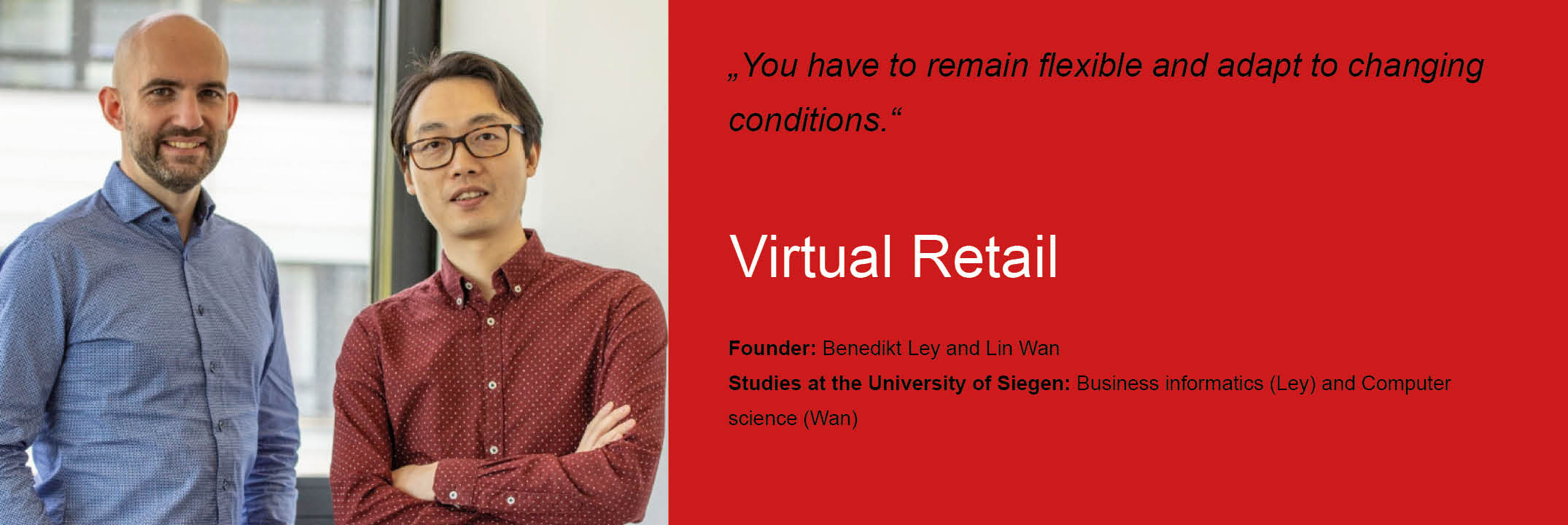Virtual Retail
Benedikt Ley, Lin Wan, Martin Hill and Bernd Buxbaum form the founding team of Virtual Retail. Virtual Retail is a software development company whose technology offers the latest solutions in the field of body scanning. With their algorithms, the founders can calculate a person's body measurements from just two images. This technology is primarily used in the B2B sector. Wherever fit is required or body measurements are relevant for product selection, their development is used. Retailers can licence their technology and integrate it into their webshop as a plug-in.
Thanks to their previous jobs as research assistants at the University of Siegen, Benedikt and Lin knew that they could work well together even before they founded the company. With their degrees in business informatics (Ben) and computer science (Lin), they bring the necessary expertise to the start-up. This is complemented by the experience and network of co-founder Martin Hill, who holds a professorship in business administration and has already founded several companies. Finally, Bernd Buxbaum, CEO of pmd, which manufactures 3D sensors, forms the technical bridge to the start-up idea and thus completes the successful symbiosis of the four founders.
Founded in 2016, the company is now based in Siegen Summit, the region's new high-tech centre.
A high capital outlay was necessary for the foundation. This is why Virtual Retail was financed by the Siegerland Fund, among others. This secured the salaries of the founders and six other employees right from the start. The founders have since sold the company to the ifm group of companies in Essen, but Lin and Ben continue to work as managing directors at Virtual Retail. In addition to handling administrative tasks, both are still involved in the development of new applications.

How did you come up with the idea of virtual retail and the associated idea of scanning people and objects?
At the time of its foundation, the concept of augmented reality was becoming more and more popular. At that time, Google had developed a technology platform called Project Tango, which was able to capture the spatial environment with the help of sensors. How close or how far away are the walls? How far away is an object from the camera? The application was able to recognise all of this, making it possible to place virtual objects in a room or measure rooms and objects. For this purpose, 3-D sensors from pmd were installed in mobile devices.
Inspired by an idea from Benjamin Hill, Martin's son, we asked ourselves: ‘Couldn't this technology also be used to scan people and then use this data to extract their body measurements?’ This would make it possible to try on clothes virtually when shopping online, for example. This idea became more and more concrete in the summer of 2016 and ultimately led to the company being founded.
What attracted you to setting up your own company?
I was attracted by the entrepreneurial approach itself. You have a fundamental say in what happens and how it happens. This gives you the opportunity to work in a self-determined way. My father introduced me to entrepreneurship and self-employment at an early age and this was always an option for me.
When did you decide to set up your own company?
Basically, I had had the idea of starting my own business for some time, but the fact that it happened in 2016 was simply a matter of the framework conditions. The entire interplay between the team, the idea and the financing was just right.

What is/was innovative about your company?
The solution for body scanning, i.e. the product itself, is very innovative. With our technology, we are moving into the field of modern artificial intelligence (AI), as it is not normally possible to measure how tall a person is from an image. Our work is therefore very close to the current state of research. Our approach has great potential for growth.
With the sale of the company to ifm, we will also place a special focus on industrial applications related to AI in the future. For example, we are currently working on a system that helps production workers to avoid errors. To do this, a camera practically watches over the workplace as they work. If errors occur, the system recognises this and the employee can correct themselves. This is the direction we want to go in. However, the topic of body scanning should not freeze.
What was the biggest challenge you faced with Virtual Retail?
In principle, we had hardly any challenges when we founded the company. The financing was in place and we had no other problems.
But when Google cancelled the Tango project in 2017, we were faced with an immense challenge. Our entire previous development was based on this technology, and suddenly we had to completely reorient ourselves. The problem was that the mobile phone manufacturers did not integrate Project Tango and the necessary sensors into their hardware (smartphones, tablets, etc.). And when Apple launched AR Kit, a purely camera-based augmented reality platform, Google also developed such a solution. It was therefore completely unclear to us whether and when the 3D sensors required for our technology would be available in smartphones. We therefore had to react and from this point onwards we took the route of using the ‘normal’ mobile phone camera and calculated body measurements from images, just as we still do today. Working for 1.5 years on something that is then no longer needed is very demotivating - also for our employees.
To what extent did the university's start-up office support you?
First of all, we had an office with a telephone and internet and everything you need. That was a great help. In addition, there were always very constructive discussions with the start-up advisors. That provided a good point of contact for questions and you could back up your idea with people with experience.
What is your advice for young founders?
You shouldn't fall too much in love with the initial idea, as things didn't work out exactly as we had imagined - keyword Google Tango. You have to remain flexible and adapt to changing conditions. On the other hand, you should never start a company out of a desire to earn big money. Making millions quickly is rarely the case.
Would you found a company again?
Yes, I would. For me, the challenges we have faced in recent years make the whole start-up project incredibly exciting. I have an exciting job and can see how the whole thing develops every day.
This portrait is based on an interview with Benedikt Ley in June 2020 and was written by Janice Gust.
Click here for the startup's homepage.


